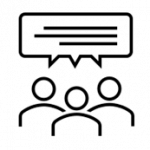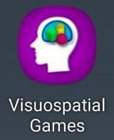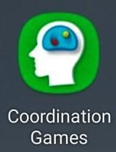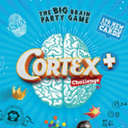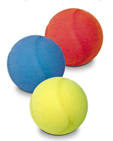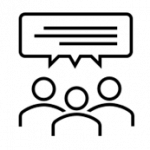martina
New member
- Table of contents
-
- Free time
- Keywords
-
- Perceptual-motor functions
Did you know?
Perceptual-motor functions can be affected in preclinical phases of dementia!
Perceptual-motor functions can be affected in preclinical phases of dementia!
Perceptual-motor functions can be considered a range of abilities necessary in daily activities. They include interaction of voluntary movements and perception, eye-hand coordination (important for example in drawing), ability to recognise the meaning of some movements (for example, saying ‘Hello’ with hands) and awareness of perception (for example, face recognition)[1].
If you are a person living with dementia you may lose these abilities. You may forget the sequences necessary to perform daily tasks, such as dressing, washing, and preparing coffee.
A way to train your perceptual-motor functions is the well-known board “Labyrinth”. The game is aimed to move the ball to reach targets, using the shortest possible route through the Labyrinth.
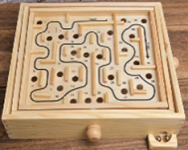
[1] Edition, F. (2013). Diagnostic and statistical manual of mental disorders. Am Psychiatric Assoc, 21, 591-643.
Did you know?
Perceptual-motor functions can be affected in preclinical phases of dementia!
Perceptual-motor functions can be affected in preclinical phases of dementia!
Motor disorders are usually considered specific symptoms of some forms of illnesses such as Parkinson. The latest scientific studies show that some movement difficulties are also present in preclinical phases of some forms of dementia (whose most prototypical symptoms are cognitive, as in the case of Alzheimer's).
Specifically, while the first compromised cognitive functions are orientation, memory and praxis, the motor functions most affected are muscle tone and dynamic coordination .
What are perceptual-motor functions?
The perceptual-motor functions include a range of abilities necessary in daily activities: the abilities involving the interaction of voluntary movements and perception, the eye-hand coordination which is important for example in drawing or playing ball games, but also the ability to recognize the meaning of some movements or doing them (e.g. say ‘Hello’ with hands) and the awareness of perception (e.g. face recognition).
Each activity requires specific sequences of gestures for achieving a goal in relation to the external space. People living with dementia may lose this ability. They may forget the sequences necessary to perform daily tasks, such as dressing, washing, and preparing coffee. They can also be unable to remember how to use an object. Sometimes a task can be left unfinished or an initial help may be needed to perform actions correctly.
A sedentary lifestyle accelerates physical decline, hence the importance of an active lifestyle and physical activity. They have positive effects not only on physical health but also on cognition. For example, gradual decline in hand motor function is related to a reduction in the ability to perform functional daily activities such as moving objects, getting dressed, eating and writing, and may hence affect quality of life.
Here you can find some advice on apps and games through which you can train perceptual and motor functions!
Apps
Recommendation
No one knows better than you what time and level of game is perfect for you, so remember to stop before you experience or sense any tiredness or boredom in your family member! Playing is a time of pleasure, dedicated to mental training while feeling good and comfortable.
References
Edition, F. (2013). Diagnostic and statistical manual of mental disorders. Am Psychiatric Assoc, 21, 591-643.
Moro V, Facci E, Amato S, Stefanescu G, Gobbetto V, Fontana G, di Francesco V, Gambina G. I disturbi motori nella demenza: uno strumento per la diagnosi e l'intervento precoci. Boll Epidemiol Naz 2020; 1(2):22-31.
Attachments
Last edited:

